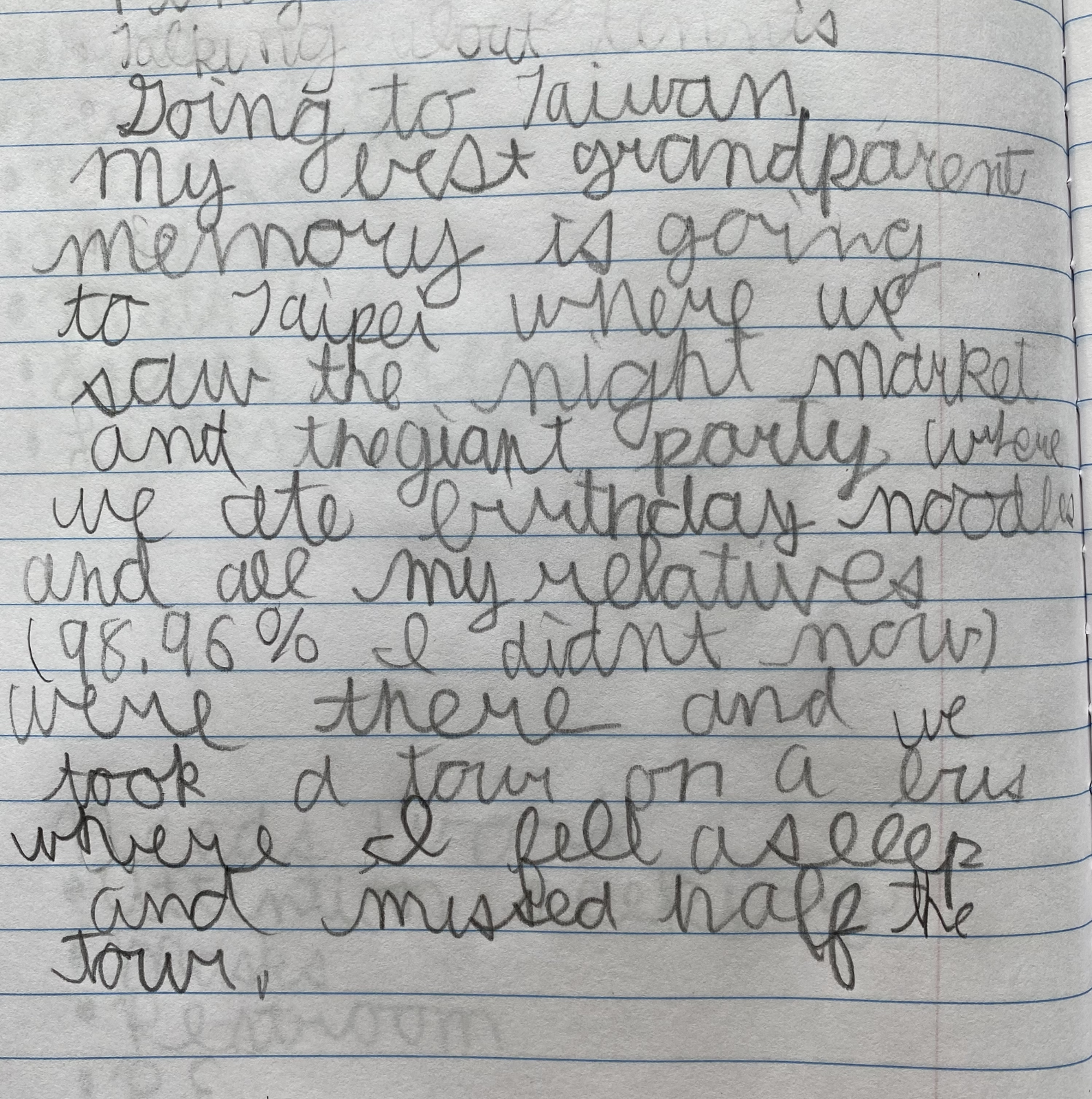Character Amnesia
by Karen Fang
Today, handwriting in the digital era. The University of Houston presents this series about the machines that make our civilization run, and the people whose ingenuity created them.
Can you write in cursive? Do you?
I do, but that's because I grew up when personal computers were just starting to take hold. I'm at home on a keyboard and write these episodes on my laptop. But, when a personal touch is important, I still write my thank-you notes and condolence letters in longhand.
This capacity for cursive makes me something of a dinosaur. With mobile devices and voice messages, auto-correct and voice-activated text, writing by hand can seem really outdated. I see this with my students and children, whose fingers twitch when separated from electronics. Their hearts and minds are filled with ideas, but they struggle to communicate if given only pen and paper.
What are the consequences of modern technology's displacement of traditional penmanship? All the way back in ancient Greece, Plato worried that writing instruments might undermine human memory. Today, some people worry that digital innovations have wrought a helpless population, incapable of recalling phone numbers or finding our way around town on our own.
So if writing, as Camus said, is how civilization avoids destroying itself, shouldn't we hold onto all the practices that help us record our humanity? Teachers and researchers have long known that the physical act of writing in longhand is far better than typing for creativity, comprehension, and committing content to memory. They also suggest that cursive might be better than block printing, because the smooth flow of letters into each other doesn't disrupt a writer's stream-of-consciousness. Similarly, reading script uses different parts of the brain, helping keep our minds more versatile and agile.

Ernest Hemingway, who often started his novels in longhand, writing while at camp in Kenya.
Photo Credit: Look Magazine and Wikimedia Commons.
If that's not enough reason to hold onto longhand, the decline in handwriting clearly has a detrimental impact. In nonalphabetic writing cultures such as those in Asia, young people habituated to sound-and character-conversion software are increasingly unable to handwrite in their own language. Linguists and anthropologists call this phenomenon "character amnesia," when one forgets how to form the complex visual symbols that compose Chinese and Japanese words. But "character amnesia" could also be a metaphor for what happens to us when our reliance on digital communication causes us to abandon the intimate, personal power of handwriting, with all that it does for our brains, social connection, and human creativity.

A writing draft by my then 9-year-old son. (January 2021).
Photo Credit: Karen Fang.
Today any basic word processor has a bigger vocabulary and makes less spelling and punctuation errors than many humans. But it can't promise good content. Meanwhile, it's the older, analog modes of writing by hand that have been shown to foster creativity and growth.
So the next time you want to write or record something, you might think not only of what you want to say, but how the writing platform you choose detracts from or enhances your content. Don't be a wāpurobaka (ワープロ馬鹿), a Japanese term for "word processor idiot." Remember, instead, the words of Pulitzer Prize-winning author Carl Van Doren, who says that "to write is hard, but to not write, is harder."
I'm Karen Fang, at the University of Houston, where we're interested in the way inventive minds work.
(Theme music)
Maria Konnikova, "What's Lost as Handwriting Fades" New York Times. June 2, 2014.
Pam A. Mueller & Daniel M. Oppenheimer, "The Pen is Mightier than the Keyboard: Advantages of Longhand over Laptop Note Taking" Psychological Science, 25:6 (2014): 1159-1168.
Judith Evans, "Wired youth forget how to write in China and Japan." Phys.org. August 26, 2010.
This episode was first aired on March 29, 2022